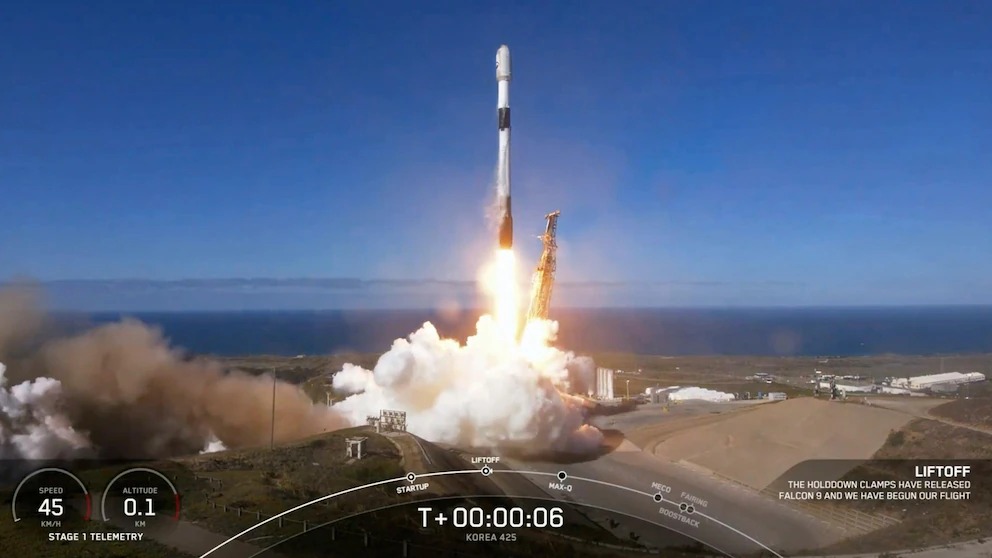77
South Korea Launches First Military Spy Satellite as Tensions Rise with North Korea
South Korea has successfully launched its inaugural military spy satellite into space. The launch comes just over a week after North Korea claimed to have placed its spy satellite into orbit for the first time. This escalation in satellite deployments highlights the growing tensions between the two neighboring countries. Let’s delve deeper into this latest development and its potential implications.
Launch Details and Purpose:
Using SpaceX’s Falcon 9 rocket, South Korea’s first military spy satellite was launched from California’s Vandenberg Space Force Base. This satellite is the first of five that South Korea plans to deploy by 2025 under a contract with SpaceX. The launch had been rescheduled due to adverse weather conditions. South Korea, which previously relied on the United States’ spy satellites for reconnaissance purposes, now aims to establish its independent space-based surveillance system.
The successful launch marks a critical milestone for South Korea as it strengthens its military capabilities. With the newly acquired satellite, the South Korean military can enhance its preemptive missile strike capability, forming a vital component of its comprehensive three-axis system that includes missile defense and retaliatory capabilities. This development allows South Korea to monitor and respond more effectively to any potential threats posed by its northern counterpart.
North Korea’s Claims and International Response:
North Korea, having faced two failed launch attempts earlier in the year, announced the successful placement of its Malligyong-1 spy satellite into orbit. The reclusive nation asserts that its satellite has provided imagery of key sites in the United States and South Korea, including the White House and the Pentagon. However, experts question the satellite’s ability to capture high-resolution militarily useful imagery. Multiple United Nations Security Council resolutions prohibit North Korea from launching satellites, viewing them as cover for long-range missile tests.
Following the North Korean satellite launch, condemnations poured in from the United States, South Korea, and other nations. Responding assertively, North Korea declared its sovereign right to launch spy satellites in response to perceived U.S. hostilities. In a further provocative move, North Korea’s Defense Ministry threatened to take unspecified actions against U.S. spy satellites, considering any such action as a declaration of war.
Impact on Inter-Korean Relations:
The North Korean satellite launch has exacerbated animosity between the two Koreas, resulting in steps taken to breach a prior military agreement aimed at reducing front-line tensions. Kim Jong Un’s commitment to integrating advanced technology systems, including spy satellites, into North Korea’s military arsenal has further intensified concerns. Meanwhile, South Korea, along with the United States, has responded by expanding military exercises.
South Korea’s intelligence agency stated that Russian technological support likely enabled North Korea’s successful satellite deployment. Accusations have been made against North Korea claiming that it sought cutting-edge Russian technologies to bolster its military programs in exchange for supplying conventional arms during Russia’s conflict in Ukraine. Both Russia and North Korea have denied these allegations.
South Korea’s successful launch of its first military spy satellite represents a significant milestone in the nation’s quest for increased self-reliance and strategic autonomy. With the ability to independently monitor and respond to potential threats, South Korea strengthens its national security posture. However, tensions continue to escalate on the Korean Peninsula as North Korea’s satellite launch raises concerns among regional and international actors. The ramifications of these competing deployments will undoubtedly shape the security dynamics in the region in the coming months.
Post Disclaimer
The opinions, beliefs and viewpoints expressed by the author and forum participants on this website do not necessarily reflect the opinions, beliefs and viewpoints of Anaedo Online or official policies of the Anaedo Online.

